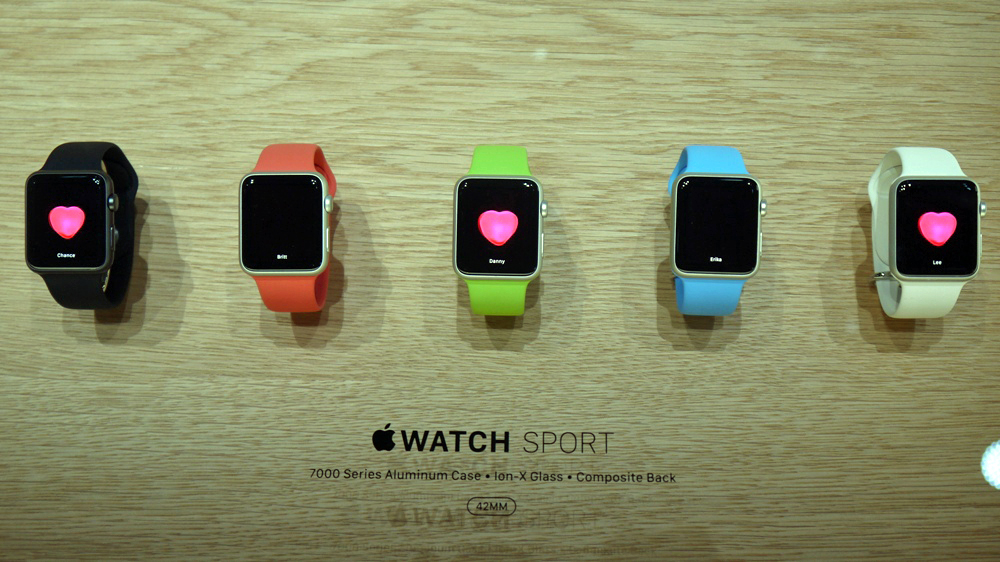Still no valid business case for wearables even with the Apple Watch
But healthcare may just lead the way

Sign up for breaking news, reviews, opinion, top tech deals, and more.
You are now subscribed
Your newsletter sign-up was successful
With the long-awaited announcement of the "Apple Watch" (what, no iWatch?) now behind us, many are wondering whether Cupertino's latest aluminium and glass clad device will be the catalyst that the smartwatch market so badly needs to take off.
Given Apple's reputation for successfully tipping nascent markets into the mainstream just by entering it, now is a sensible time to ask whether we are about to witness the same again with the Apple Watch.
Is the Apple Watch poised to join the ranks of the iPod, iPhone and iPad as the next Apple device to create the next big thing in IT? Has Apple just (re)invented the wearables market?
Not so fast. In less than two weeks since its announcement, there appears to be a clear divide emerging in the reactions to the device. For many consumers, it is the best smartwatch announced so far, and it's hard to argue with the projected sales figures.
But on the business side, there is a lot more scepticism. As is frequently the view of the resellers we have spoken to, it is just too early to tell what impact the watch will have since there is still no clear business case for the device.
What new sizeable benefits do smartwatches, or other wearables like Google Glass for that matter, bring to businesses and the public sector that smartphones, tablets and PCs don't already?
We are often tasked with obtaining unusual, rare or experimental products for our IT reseller customers, which gives us some insight into the IT industry's appetite for the next big thing. So far, aside from a handful of low volume orders for testing/development purposes, we have seen very little interest in wearables among the IT channel.
Sign up for breaking news, reviews, opinion, top tech deals, and more.
Some are experimenting with devices such as Google Glass in their labs for example as they try to figure out how to sell it, but there is very little interest beyond that. Most telling of all perhaps is that of those resellers that have ordered a small number of units for testing purposes, not one of them have followed up with larger orders of a wearable device. No one is selling wearables to their customers in any serious volumes yet.
Smartwatches have so far been largely sold on their fitness credentials; with the Apple Watch keynote being no exception to this rule.
This is a sensible approach since it is the nearest "new" feature that a smartwatch can own. But it is also clearly only a consumer feature. What is the business killer app that will take smartwatches, and potentially other wearables, out of its consumer niche?
From the early interest that we are seeing, the healthcare market is by far the most advanced in the wearable technology space and could very well be the part of the market where wearables make their first meaningful impact.
The success of Bluetooth in healthcare has a part to play here, where the wireless standard is already being used to monitor an array of healthcare devices from glucose monitors to stethoscopes.
In fact there are already 40 million Bluetooth enabled home and professional healthcare devices on the market today, and by 2016, 50% of all wireless-enabled consumer medical devices are predicted to use the Bluetooth standard. Smartwatches make for a sensible companion to these Bluetooth devices.
But beyond Bluetooth, we know of many healthcare organisations that are investing significant amounts of time and money to devise use-cases for wearables in healthcare, and many healthcare-specialist vendors are speaking with us to find ways to break into the broader IT channels.
Momentum is definitely building. In a few years smartwatches could be far more than a fashion accessory; for some people they could very well mean the difference between life and death.
While it is still too early to predict the long-term success of the smartwatch and wearable markets, if early indications are anything to go by, their fate rests in the hands of those innovators in the IT channel experimenting with the devices in their labs. I am confident they will come up with the goods. Let's just hope they don't take too long about it.
- Stephen Dale is channel manager for ASM Technologies